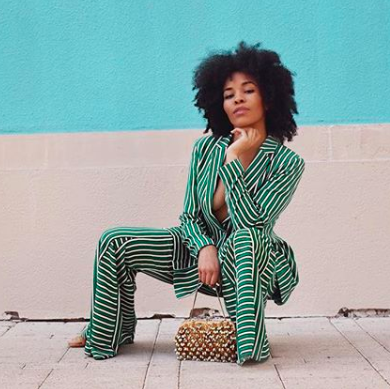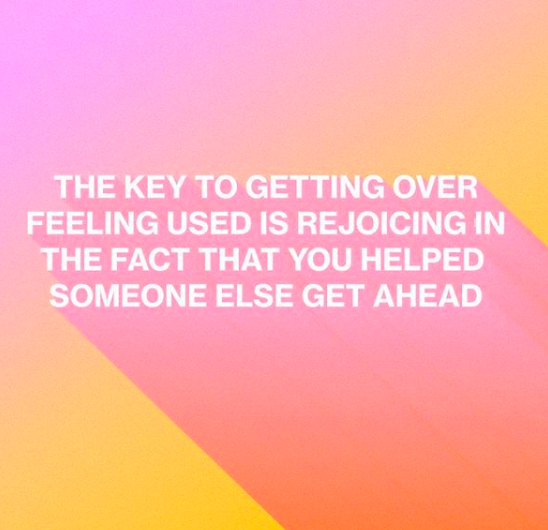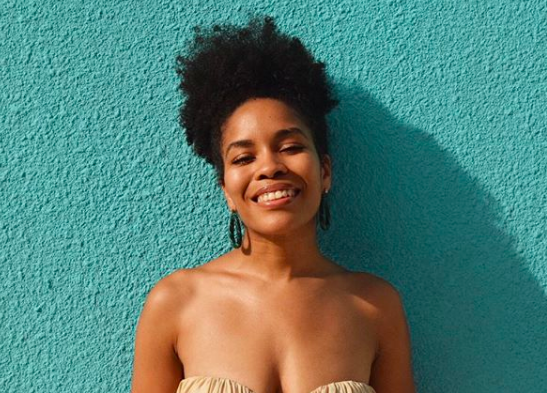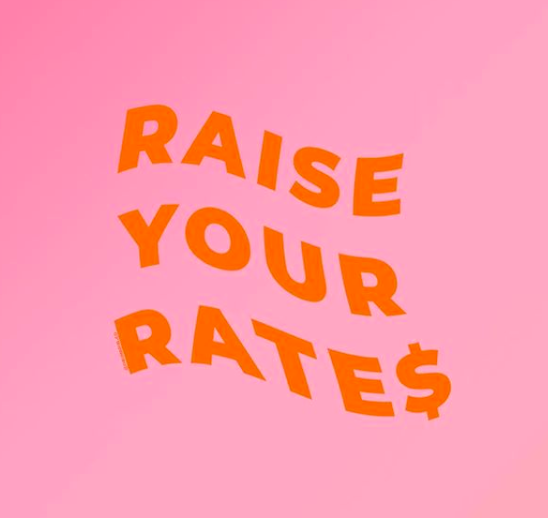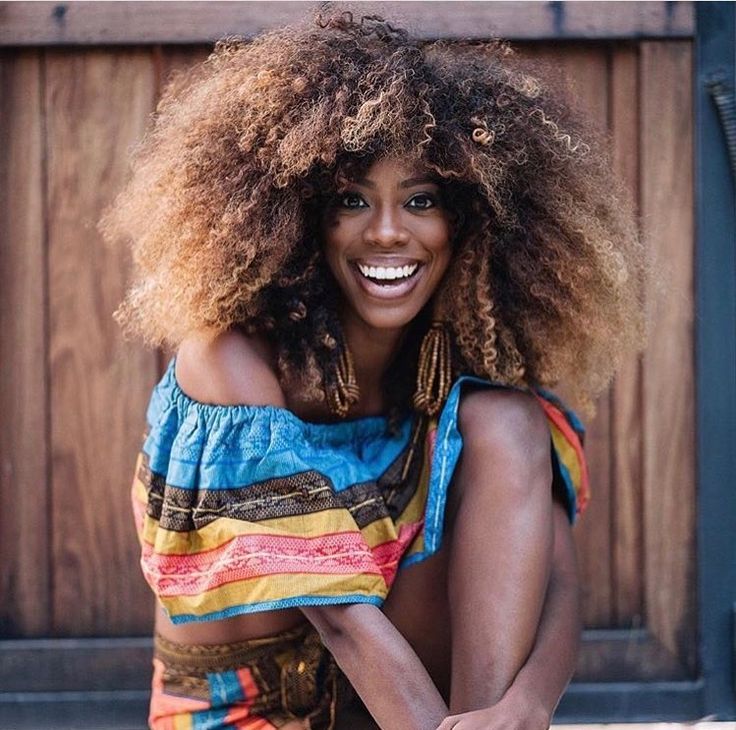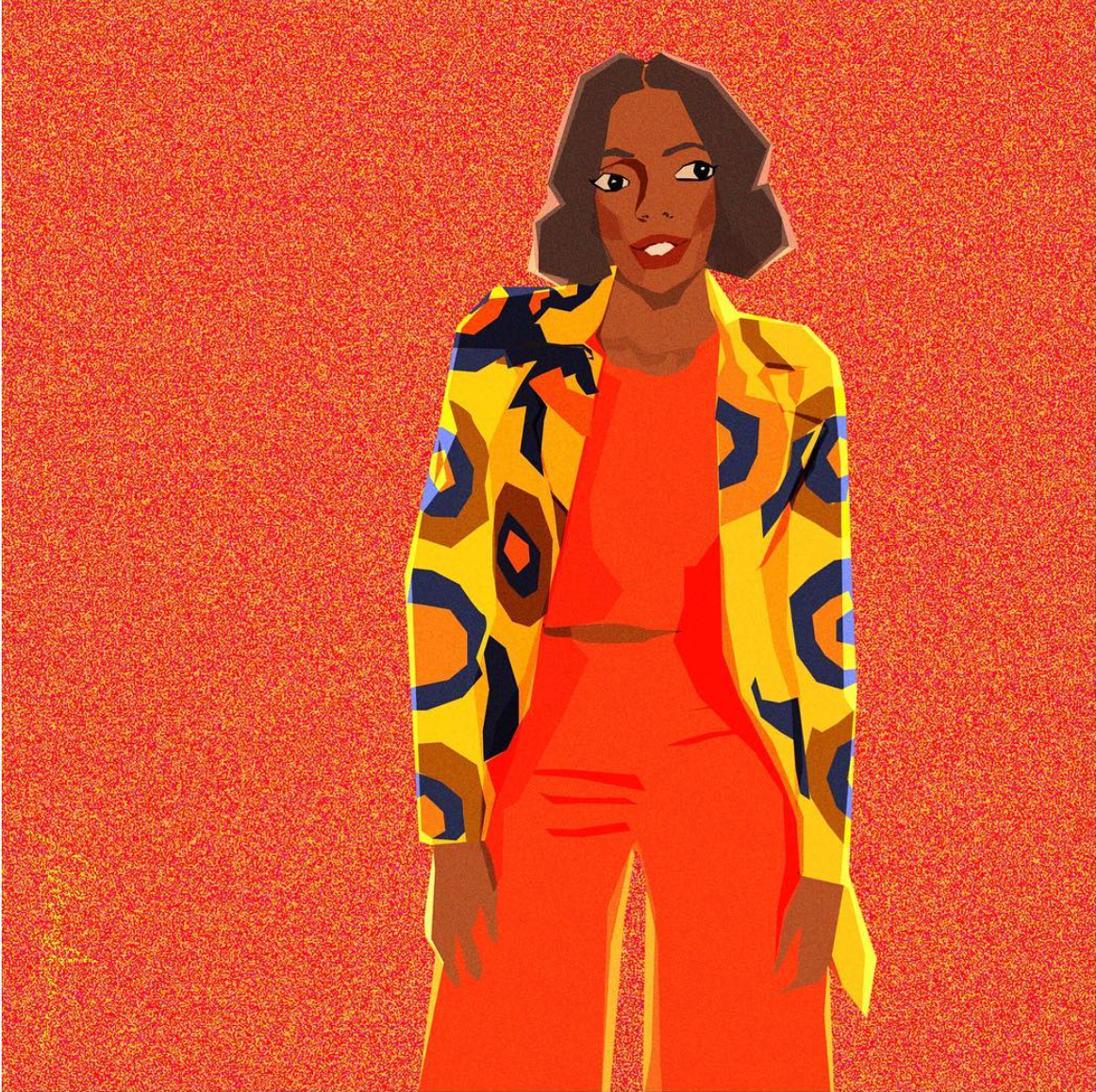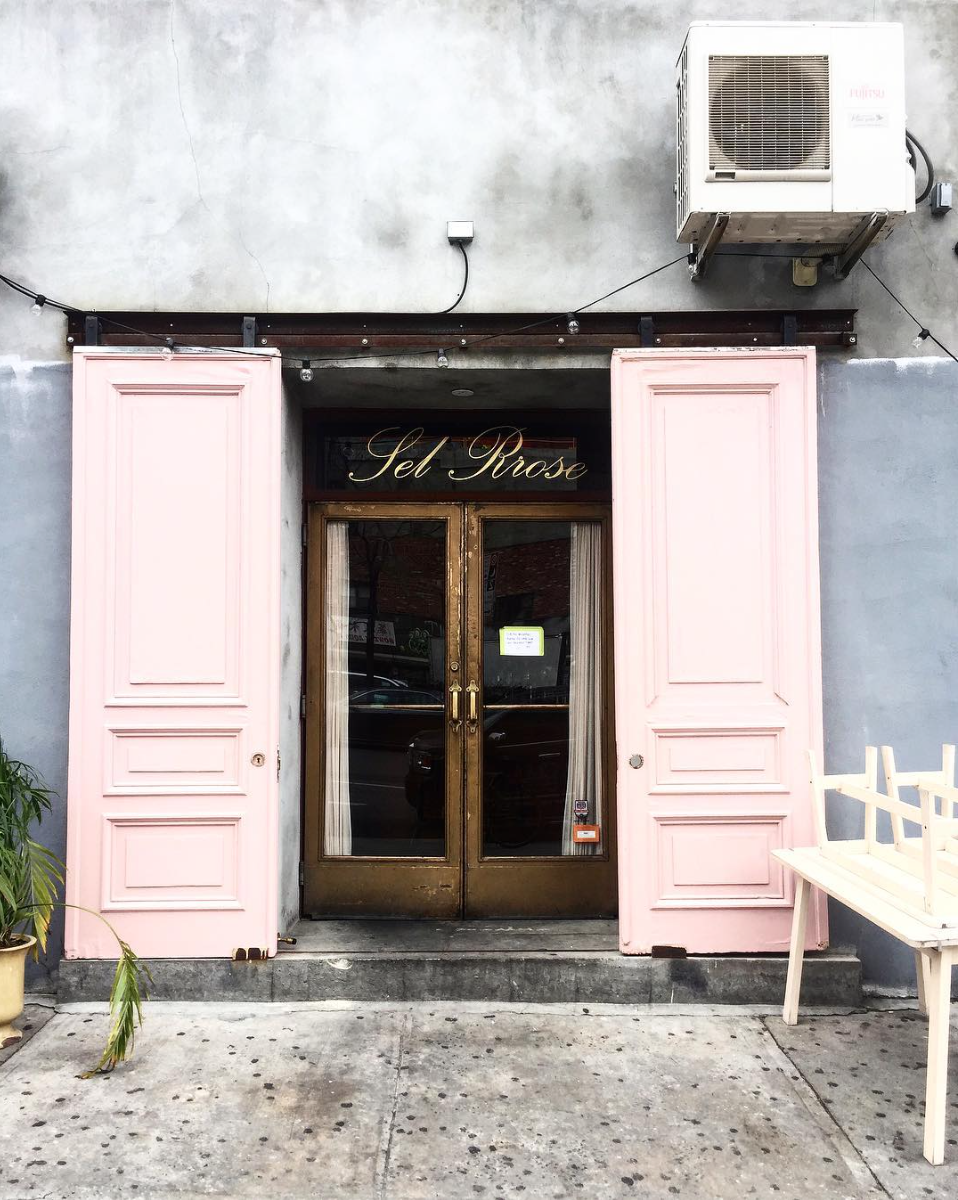How This Brand Strategist Is Building a Girl Gang for Black Creatives
“That’s what wakes me up in the morning: knowing I’m collaborating with women from all walks of life to design the brand of their dreams.”
Brittany Wilson is a woman you want to know. Formerly in fashion and marketing, she launched her design and branding studio, The Idea Girl, in 2017. Since then she’s been helping budding entrepreneurs and business owners figure out their company mission—and then going out and living it.
Below, Brittany shares the secret to her success.
What inspired you to start The Idea Girl? What need did you want to fill?
Two things actually inspired me, for one my multifaceted background often left it hard for me to find a career I thought I could grow with and hearing my family say things like “Jack of All Trades, master of none” didn’t help much either. I love creating beautiful things to make people feel good about themselves, and I’ve had many vehicles serve that common core. I’ve worked as a sales associate, visual merchandiser, and assistant buyer to passionately shop with strangers for their most intimate moments. I’ve also worked as a marketing manager, office assistant, and even become an operations manager for a Mitsubishi dealership to spice up the skillset. By age 24 I was working a crappy receptionist job and fighting a tough battle with depression. I was tired of getting hired, fired, and climbing up the ladder and losing to office politics.
Sick of being in a slump, I decided to create the life I wanted including a job I’d fall in love with. I realized that I was the go-to person at work and in my circle for all things aesthetic related from fashion to interior design, which created the “aha moment” of calling my brand The Idea Girl. I decided to take all my skills and talents and create a job title that included all of my expertise in one. I want to show women everywhere that we are malleable, fluid, and multidimensional and can manifest our thoughts into action. I want to show them that having a title holds no value and break from it boundless to be the creative forces that we are meant to be.
Two, the lack of economic power and freedom within the Black community is what shifted my focus to working with women of color specifically. Art, creativity, and talents are typically frowned upon in our culture due to the older generations faith in the hospital and government jobs. Many of us are tricked into believing that a college degree will provide us with security and a moderate paying job will be the safety blanket we need. WRONG! I wanted to break that generational curse that’s kept so many young people of color from pursuing their dreams and tapping into their innate and artistic abilities. Through The Idea Girl, we empower women of color into entrepreneurship by helping them dig deep within to monetize off their skills and talents through adept strategy and emotive design approaches so they can shine confidently next to their competitors and communicate with their clients. We needed a space where we can thrive financially, spiritually, and professionally to break generational curses and pass down our wealth. There weren’t too many creative safe havens for women of color, so I created one.
“Decide what makes you feel good and progressive. Stress is real, not-so-easy clients are real, and time is limited—so make it worth your while and feel good all of the time.”
You work solely with woman-owned startups and female entrepreneurs. What drove you to make this business decision?
I love working with women because I am a woman. Women are fighting adversity on a daily basis from their wages to their body rights. Starting my own business lit a fire in me that I never know could be ignited, a feeling so contagious that it was obligatory that I spread it. There is nothing like seeing another woman finally recognizing her worth, reclaiming her time, and fully investing her talents into a business to help solve issues both big and small. Forbes recently said that Black women are the fastest growing entrepreneurs in the nation, it makes me extremely proud knowing that I am one of the people behind the scenes accelerating this spike through my work to help women like me shine.
What’s been the most fulfilling part of your job? What about the biggest challenge?
The most fulfilling part of my job would have to be the look on my client’s faces when I bring their brands to life with design. Seeing is believing, so once they start seeing mockups and prototypes it’s like “Woah, sh*t’s getting real!” and the ideas and inspiration begin pouring in abundance. Their confidence beams through their smiles, and in that moment I know I am fulfilling my purpose. The biggest challenge would definitely be balancing my personal life and prying myself away from my laptop. Sometimes I’m so obsessed with what I do, that I’m afraid to go to sleep in fear of missing out of something. I even have to watch my dialogue when speaking to my boyfriend, friends, and family so it isn’t always work-related. My mind keeps me up, and I’m always overworking. I have to be extremely mindful of my body and the messages it sends me. If my body says she’s had enough, I know it’s time to hit the lights and to hit the sack. My biggest challenge staying healthy (mentally), keeping my body going, staying hydrated, and keeping anxiety at bay.
In the FAQ section of your website, you post your studio hours. This isn’t a common practice among entrepreneurs. Why do you think it’s important to let clients know your availability?
A friend of mine was actually the one who encouraged me to enforce office hours to set professional boundaries between my clients and I. There would be times where I would receive emails at 3AM and felt anxious and reluctant to answer every request at any given moment. It was wearing me down, so for the sake of my mental and physical health, I keep my office hours up to let my clients know the times they can catch me working and when they can get a response. Communicating that in the most professional way possible is also key. I let my clients know that I have every intention of completing their requests and I politely reiterate my policies and all possible options we can take to move forward. It’s important to inform clients and prospects the times they can reach me, but it’s just as imperative to let them know when I’ve clocked out for the day. I also have specific days set where I take phone calls that way I won’t lose track of time and can focus on my design projects for most of the week as that can also cause major distractions. Having a work schedule actually helps me leave work at work, so I can enjoy life outside of it; money isn’t the key to happiness but peace of mind most certainly is!
Time management definitely taught me the importance of managing effective office hours. You have to time everything you do and decide what makes you feel good and progressive opposed to funky and regressive. Stress is real, not-so-easy clients are real, and time is limited so make it worth your while and feel good all of the time. I set my boundaries with time and let people know to respect it in the sweetest and most professional way possible. Also, it kind of gives me a reason to light a spark my clients. It’s like being a coach or teacher, teaching them the importance of slaying their business goals in between there 9-5pm. Plus what I normally do, my clients follow suit to improve their lives. When I make better use of my time, so do they, and I love impacting them in that way.
You host GRLPWR Launches to help business owners hone their brand strategy and marketing solutions. Tell us a bit about what that process entails.
The GRLPWR is a combination of brand strategy, marketing, and creative solutions individually crafted for each brand I work with. Typically for business newbies or seasoned girl-bosses who want to implement a new endeavor, I work side-by-side with women to help get their ideas out of their heads and into their pockets by building out content plans, connecting them with ladies in my professional network who can help them execute their vision, and exploring future opportunities by mapping out their objectives and aligning them chronologically according to what makes the most sense right now in this moment. I give my clients the freedom to think out loud and devising a plan to get there from A to Z, figuring out where to monetize and what part of their business to invest in first. We start off with deep brainstorming where we formulate ideas and concepts with action plans to get started. Then they go through a series of workbooks to develop their brand and communications strategy before we develop a customized vision board before executing the launch.
“The Idea Girl Gang celebrates Black creative women by sharing a safe haven for them to network, find jobs, learn skills and join a sisterhood of ‘sistas’ ready to cheer them.”
You created the Idea Girl Gang to help black women in business find work and skill swap. How is the IGG different from other women’s career groups?
In the Black community there are sorority and fraternity organizations but very few that target Black women that are taking the road less traveled in not-so-ordinary fields. The Idea Girl Gang celebrates Black creative women by sharing a safe haven for them to network, find jobs, learn skills and join a sisterhood of “sistas” ready to cheer them. IGG welcomes all female-identifying creatives of all colors, classes, and creed. Although we primarily focus on providing professional resources for Black women, we welcome our community to all people who aspire to uplift and elevate women of color.
What do you think are some challenges that face female business owners and entrepreneurs today?
I think one of the main challenges is not being taken seriously or seen as a “boss” like our male counterparts. By stereotypical measures of gender roles, women are assumed to be incapable of making tough decisions or can’t be taken seriously if our clothes are too tight. Women are badass and we get the job done with no questions asked. We wear many hats and take on jobs as counselors, strategizers, designers, and planners. Sometimes I find myself adding a bit of bass in my voice when getting a point across or during a negotiation to show people I’m not here to play and that I am just as deserving to have a seat at the table. As a woman, it’s important to have an organization that promotes love for other women and sisterhood so we can be there for each other and break glass ceilings together.
“That’s what wakes me up in the morning: knowing I’m collaborating with women from all walks of life to design the brand of their dreams.”
Who are some female designers and entrepreneurs (maybe even some of your clients!) who inspire you? Why?
Lotta Nieminen is definitely the Queen of Design in my book. Her style is so minimalistic, clean, and abstract. Jade Purple Brown is also one of my favorite illustrators with her use of bold splashes of color and homage to women of color. Most importantly, all of my clients inspire me as they are the true Idea Girls. They come up with the most innovative and creative inventions with great intent. Not only are they slaying the day at their 9-5’s they’re rushing home to speak with me to build an entire empire. That is what wakes me up in the morning, knowing that I am collaborating with women from all walks of life to design the brand of their dreams.
What are you most looking forward to in 2019?
For 2019 I am most looking forward to the unknown, and just living life spontaneously. This year has started off amazing for me thus far with my first speaking engagement, two successful events, and traveling to meet my IG girlfriends in real life! I’ve been opening myself up to receive more love and I’ve been walking blissfully blind, hand in hand with faith. I trust myself a lot more, and I trust whatever the Universe has in store for me. Opportunities and doors are opening everywhere so I am ready for whatever 2019 has to bring. More life, more love, and more vacations!
MORE ON THE BLOG
It's Black Women's Equal Pay Day: Here's Everything We Want You to Know
They’re worth EVERY single penny.
Today is Black Women's Equal Pay Day. If you're not sure what that means, allow us to fill you in. This means that Black women had to work full-time during all of 2017, and this far into 2018, in order to catch up with what white men earned in total in 2017. In other words, black women earn 38% less than white men.
To put it into perspective, imagine losing 38% of your entire salary or imagine making a purchase online and only receiving 38% of your order once it's delivered. That is the reality that Black women in America face every single day. But it doesn't end there. Black women also take home 21% less than white women in the same respective fields.
The reasons for highlighting this day are endless, but some stand out in particular and are a huge contribution to the problem. A study revealed that one in three Americans are fully unaware of the pay disparity between Black women and white men, and 50% of Americans are unaware that there is an income gap between Black women and white women, including hiring managers. In order to see the changes that must be made, this conversation can't stop anytime soon.
This pay gap exists across all industries, too. It doesn't matter if these women are Black doctors, creatives, educators—you name it. A Black woman still makes 38% less than her white male counterparts working at the same level, and 21% less than white females.
"There are currently zero Black female CEOs running Fortune 500 companies."
SOME HARD FACTS
The pay gap starts as early as the age of 16 at a rate of 16% and grows from there.
More than 80% of Black women are the 'breadwinners' in their household, so this affects them and their families tremendously.
Providing groceries, a home, paying tuition and more all need to be put into perspective.
Over the course of a 40-year career, the average Black woman loses more than $867,000 as a result of the wage gap.
In some states, this disparity is a lot worse. (i.e. in Virginia the total lifetime losses due to the wage gap total to $1,833,800.)
Almost one-half of white men say that obstacles to advancement between themselves and Black women no longer exist at work.
Only 14% of Black women agree with that statement.
There are currently zero Black female CEOs leading Fortune 500 companies.
Ursula Burns left her post as the CEO of Xerox in 2016.
Black women who have a Master's Degree only make slightly more, approximately less than $2,000 more, than white men with just an Associate's Degree.
WHAT IF BLACK WOMEN WERE PAID FAIRLY?
If this pay gap were closed, Black women would bring home almost $870,000 more over the course of their career.
The extra earnings of each Black woman would pay for three years of groceries.
There would be room for more Black women to purchase homes, earn diplomas, pay off student debt faster, and lead more financially comfortable lives.
WHAT NEEDS TO BE DONE?
Legislative action is a start. Representatives need to enforce anti-discrimination laws in the workforce in order to make sure this isn't starting at the top.
Employers need to act and be aware of their employees receiving fair and equal compensation, especially those at the same level.
Unionization is crucial.
Among full-time workers, Black women who are union members make 23% more than Black women who are not union members.
We, as a society, need to keep the conversation going and talking about this. The numbers show just how unaware plenty of Americans are when it comes to this issue. In order to take any steps forward we must continue to educate those around us.
WHAT OUR AUDIENCE HAD TO SAY
On August 7th, 2018, Create & Cultivate hosted a live Twitter chat for Black Women's Equal Pay Day in partnership with 21 Ninety, Tribe, and blkcreatives. We wanted to get real responses from real Black women who face this pay disparity every day of their careers. Here are some of the most staggering responses we received.
"I asked for a 20k raise at my last company to bring me up to market rate. I was given 10k & more work. I found another job making 25k more."- Anastasia
"I also think it's worth noting that the MONEY is NOT the only thing you want to negotiate. If the money isn't where you want it to be, talk about work from home days, additional vacation days, other opportunities for you to feel VALUED!- Erica
"Some employers really don’t understand how much you may be spending daily just to get to work on time. That’s just transportation costs as an example. Opening up and telling them may open their eyes to bigger problems going on that they may be more willing to help solve."- K. Doug
"There’s a difference between an unfair offer and a struggle offer. I normally don’t write for free, but for a startup that I believe in? Sure. But people don’t magically start valuing you—especially when you’ve already said they don’t need to."- Dawn
For more tips check out 21 Ninety's FREE guide on negotiating your worth.
By: Andrea Navarro
MORE FROM OUR BLOG
Create & Cultivate 100: Entertainment: Yvonne Orji
THE BREAKOUT STAR.
THE BREAKOUT STAR.
When Insecure actress Yvonne Orji says, "I feel good as a woman in Hollywood. I feel good as a black woman in Hollywood," you can tell she means it.
And she doesn't think her job would be easier if she were a man. "No, because I like being a woman. I think there is beauty and benefit to being a woman. I like being able to go into male-dominated spaces and blow people’s minds away."
That’s not to say she is blind to the discrepancy in Hollywood. Race issues. Age issues. Wage issues. There’s no way to avoid them.
"I like being able to go into male-dominated spaces and blow people’s minds away."
Tweet this.
Her journey through Hollywood certainly hasn't been without sexist moments. Having first made a name for herself on the stand-up circuit, Orji says there was always a moment where the announcer would prep the crowd. "Are you ready for a woman? are you ready for a woman?" they'd ask. These are the micro-aggressions that continuously diminish women at work. "They never do that for man," she says and it's no laughing matter. "Apparently," says Orji, "there are rules as a female standup comic. You can’t be pretty, skinny, and funny. Pick one. You can’t be all these things. To be funny, you have to be overweight, and you have to be dirty with your jokes." That's not the case for Orji. "I do clean comedy and just really want to make people laugh in a positive way. Yes, I know how to work out and put on makeup. Why are there so many fractions in order to make people laugh as a woman? You don’t hear this from guys. You can just be funny."
But she's never let those intros deter her or hold her back. "I stand my ground and stand my own. This is me. I am not backing down. You may not know me now, but by the time I finish my set, you’re going to think I’m incredibly funny."
These are also stereotypes she’s been working to break with Insecure, which is about to begin filming its highly-anticipated third season on HBO. Orji plays BFF Molly (a high-powered DTLA attorney) to Issa Rae's character, Issa. The show has been properly aplauded for being an important show with great roles with great roles for women as well as one that tackles social and race issues while avoiding cliches. "Molly can be insecure. Everyone can be insecure. And that happens in life. You have one thing set and then you don't. You’re dating someone, but then you want a new job. You have the job, but you don’t have the relationship. There are always things that aren't working."
It's this kind of material, and the specifically multi-faceted role she's currently playing, that makes Orji love being a woman in this town. "Especially now," she says. "With the type of content we put out there and the content creators that are allowed to have their voices expressed." She brings up Living Single. “There were shows that were popular in the ‘90s that featured strong black characters, and then that fell off for a minute. There was a gap in programming." But shows like Living Single allowed for the progress and next iteration of strong black female-led comedies. i.e. you can be a high-profile black, female attorney who also doesn't have it all together. It's the true Millennial experience, where women, and here specifically black women, are more than one thing.
When asked about the latest success of Wonder Woman and Gal Gadot (a fellow C&C 100 honoree), Orji quotes an article that talks about how true success will be when a female-led movie is allowed to fail and Hollywood will still make another. “Men have been failing for years. And they are still given development deals and big deals with studios. There is so much pressure on women. ‘Oh if this fails, Hollywood will NEVER make another movie like this. It HAS to be great.” It’s a dangerous setup. For Orji, “Divide and conquer doesn’t work here,” she says. Not if Hollywood wants to make progress. "Women helping other women is the way." And it's why she explains, "It’s so important for Issa and I and why we work really hard at it. It’s also more comfortable to look around a set and see a female sound tech, a female executive producer." She brings up award-winning director extraordinaire Ava duVernay, a champion for diversity in Hollywood. “It’s the same thing with directors like Ava. When people say, 'I don’t know another black actress.' Ava will say, 'Well, how about her?'” We bring up the all-female set of Zoe Lister-Jones’ movie Bandaid. “Ooh, checkmate, Hollywood,” she says. Except Orji isn’t sitting around waiting for Hollywood to make its move. She’s making her own. Taking her future into her own hands— a space where she is clearly comfortable.
"I came to Hollywood as an intern in the writer’s room and I didn't really know what that meant, but I saw how much power exists in there. With First Gen [her semi-autobiographical sitcom that that draws loosely from Yvonne's stand-up routines and real life experiences] maybe I didn’t know structure, but I knew people. And you have to be willing to take the risk. At least for me. It was up to me to take this into my own hands." Thats’s the kind of go-getter she is. And that part is so crucial.
"I stand my ground and do my thing as me. I can go toe-to-toe with the next guy."
Tweet this.
"I stand my ground and do my thing as me. I can go toe-to-toe with the next guy. There is strength and power in being a woman: we are smart, we are creative, and we are compassionate. Are there great women out there doing amazing things, with a guy coming in not doing anything extravagant and everyone thinks what he’s doing is amazing, but yet she has to prove herself? Yes, that does still exist and it does still suck, but not to the point where I want to be something other than an African immigrant black woman. No, no, no! I’ll take my portion, I like it."
She also notes there has to be more diversity because the women at the forefront of society are more diverse. “Who is going to play the First Lady (Michelle Obama), who is going to play Oprah?” she asks. (#Oprah2020.) Good questions.
We have a strong feeling she'll be in the running.
Photo Credit: @davisfactor
Hair & Makeup: @SmashboxCosmetics @TheGlamApp @TheOuai
TO SEE THE FULL CREATE & CULTIVATE ENTERTAINMENT LIST CLICK HERE.
Why "Insecure" Star Feels Good as a Black Woman in Hollywood
The future of TV is fierce AF.
R: Yvonne Orji by graphic illustrator Monica Ahanonu
When Insecure actress Yvonne Orji says, "I feel good as a woman in Hollywood. I feel good as a black woman in Hollywood," you can tell she means it. And she doesn't think her job would be easier if she were a man. "No, because I like being a woman. I think there is beauty and benefit to being a woman. I like being able to go into male-dominated spaces and blow people’s minds away."
That’s not to say she is blind to the discrepancy in Hollywood. Race issues. Age issues. Wage issues. There’s no way to avoid them.
"I like being able to go into male-dominated spaces and blow people’s minds away."
Tweet this.
Her journey through Hollywood certainly hasn't been without sexist moments. Having first made a name for herself on the stand-up circuit, Orji says there was always a moment where the announcer would prep the crowd. "Are you ready for a woman? are you ready for a woman?" they'd ask. These are the micro-aggressions that continuously diminish women at work. "They never do that for man," she says and it's no laughing matter. "Apparently," says Orji, "there are rules as a female standup comic. You can’t be pretty, skinny, and funny. Pick one. You can’t be all these things. To be funny, you have to be overweight, and you have to be dirty with your jokes." That's not the case for Orji. "I do clean comedy and just really want to make people laugh in a positive way. Yes, I know how to work out and put on makeup. Why are there so many fractions in order to make people laugh as a woman? You don’t hear this from guys. You can just be funny."
But she's never let those intros deter her or hold her back. "I stand my ground and stand my own. This is me. I am not backing down. You may not know me now, but by the time I finish my set, you’re going to think I’m incredibly funny."
These are also stereotypes she’s been working to break with Insecure, which is about to release its highly-anticipated second season on HB0. Orji plays BFF Molly (a high-powered DTLA attorney) to Issa Rae's character, Issa. The show has been properly lauded for being an important show with great roles with great roles for women as well as one that tackles social and race issues while avoiding cliches. "Molly can be insecure. Everyone can be insecure. And that happens in life. You have one thing set and then you don't. You’re dating someone, but then you want a new job. You have the job, but you don’t have the relationship. There are always things that aren't working."
Orji and Rae on Insecure.
It's this kind of material, and the specifically multi-faceted role she's currently playing, that makes Orji love being a woman in this town. "Especially now," she says. "With the type of content we put out there and the content creators that are allowed to have their voices expressed." She brings up Living Single. “There were shows that were popular in the ‘90s that featured strong black characters, and then that fell off for a minute. There was a gap in programming." But shows like Living Single allowed for the progress and next iteration of strong black female-led comedies. i.e. you can be a high-profile black, female attorney who also doesn't have it all together. It's the true Millennial experience, where women, and here specifically black women, are more than one thing.
When asked about the latest success of Wonder Woman and Gal Gadot, Orji quotes an article that talks about how true success will be when a female-led movie is allowed to fail and Hollywood will still make another. “Men have been failing for years. And they are still given development deals and big deals with studios. There is so much pressure on women. ‘Oh if this fails, Hollywood will NEVER make another movie like this. It HAS to be great.” It’s a dangerous setup. For Orji, “Divide and conquer doesn’t work here,” she says. Not if Hollywood wants to make progress. "Women helping other women is the way." And it's why she explains, "It’s so important for Issa and I and why we work really hard at it. It’s also more comfortable to look around a set and see a female sound tech, a female executive producer." She brings up award-winning director extraordinaire Ava duVernay, a champion for diversity in Hollywood. “It’s the same thing with directors like Ava. When people say, 'I don’t know another black actress.' Ava will say, 'Well, how about her?'” We bring up the all-female set of Zoe Lister-Jones’ new movie Bandaid. “Ooh, checkmate, Hollywood,” she says. Except Orji isn’t sitting around waiting for Hollywood to make its move. She’s making her own. Taking her future into her own hands— a space where she is clearly comfortable. She's been tied down with ADR for Insecure Season 2 (which returns Sunday, July 23rd of HBO) and she's also hard at work on her own show, First Gen, which draws from her stand-up and her experience as a Nigerian-American and the daughter of two immigrants.
"I came to Hollywood as an intern in the writer’s room and I didn't really know what that meant, but I saw how much power exists in there. With First Gen, maybe I didn’t know structure, but I knew people. And you have to be willing to take the risk. At least for me. It was up to me to take this into my own hands." Thats’s the kind of go-getter she is. And that part is so crucial.
"I stand my ground and do my thing as me. I can go toe-to-toe with the next guy. There is strength and power in being a woman: we are smart, we are creative, and we are compassionate. Are there great women out there doing amazing things, with a guy coming in not doing anything extravagant and everyone thinks what he’s doing is amazing, but yet she has to prove herself? Yes, that does still exist and it does still suck, but not to the point where I want to be something other than an African immigrant black woman. No, no, no! I’ll take my portion, I like it."
She also notes there has to be more diversity because the women at the forefront of society are more diverse. “Who is going to play the First Lady (Michelle Obama), who is going to play Oprah?” she asks. Good questions. We have a couple of answers and a strong feeling she'll be in the running.
MORE FROM OUR BLOG
Links We Love: 2016 Was Just a Bunch of Highs and Lows
Just like our cycles.
This week you might have been a little distracted by the little notifications that someone you follow is trying out Instagram Live. You might have even caught us for a while too, but we hope we didn't distract you too much from the important things, including some of this week's top headlines.
FYI:
Award season is right around the corner. Take your picks for who will win a Golden Globe.
Under Elaine Welteroth, Teen Vogue is stepping up their editorial content 2000% and speaking on the issues affecting this country. This piece by Laura Duca is one of them.
Black Girl Magic does it once again: Read Michelle Obama's interview by Zendaya.
Greenery is in the horizon for 2017.
So let's get that money, honey.
Wonder Woman got fired as a UN Ambassador. Was it right?
The emotional (and physical) rollercoasters that are our cycles, narrowed down in two minutes.
Along with all the highs and lows for tech for 2016.
Get rid of the cliché new year's resolutions. Set your intentions right.
Traveling for the holidays next week? Here's some podcasts to keep you entertained.
Before you miss us again, make sure to follow us on Instagram to know when we'll be doing Instagram Live again. We love chatting with you. ;)

